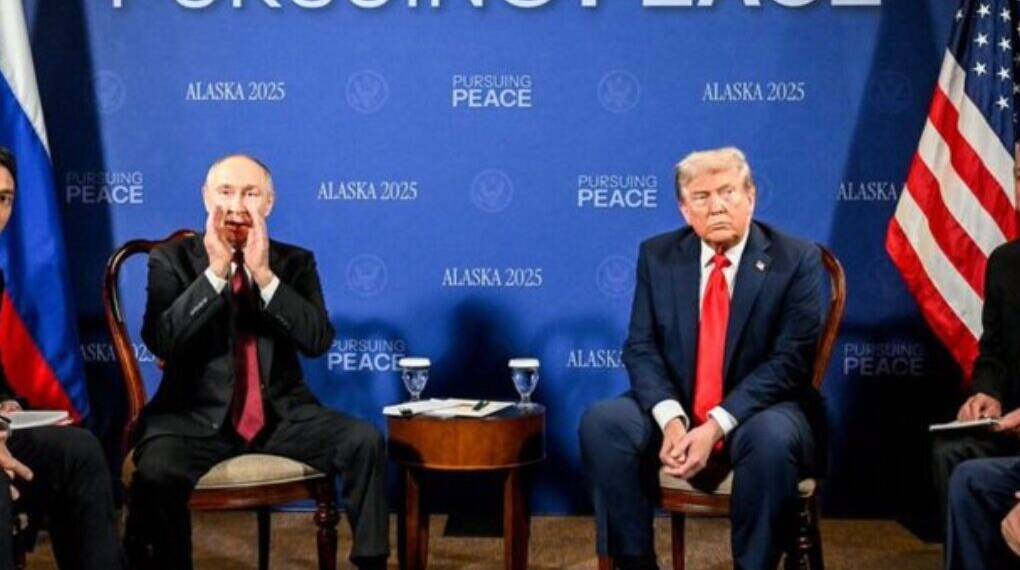In a dramatic diplomatic turn, U.S. President Donald Trump has reportedly cancelled a planned meeting with Russian President Vladimir Putin in Budapest after Moscow issued a hardline precondition memo demanding sweeping concessions on Ukraine and NATO.
The development, first reported by the Financial Times, has effectively derailed what was being billed as a potential back-channel effort to restart dialogue between Washington and Moscow amid the ongoing war in Ukraine.
According to sources cited by the FT, the Russian document sent ahead of the proposed meeting laid out three major demands: the recognition of Russian sovereignty over occupied Ukrainian territories, the imposition of permanent limits on Ukraine’s military capabilities, and a binding commitment that Ukraine would never be allowed to join NATO. These stipulations, described by one U.S. official as “an ultimatum disguised as diplomacy,” were immediately rejected by Washington as unacceptable.
A Summit Built on Fragile Foundations
The Budapest meeting, tentatively planned for mid-November, had been envisioned as an informal dialogue between Trump and Putin—an opportunity to gauge whether a ceasefire framework could be discussed outside the formal constraints of existing diplomatic channels. The Hungarian government, under Prime Minister Viktor Orbán, was said to have played a behind-the-scenes role in facilitating the meeting, leveraging Orbán’s personal ties with both leaders.
However, the atmosphere soured after the Kremlin sent its “precondition memo” through diplomatic intermediaries. Rather than a roadmap for peace, the document read as a list of non-negotiable demands that would have effectively legitimized Russia’s territorial gains in Ukraine and imposed strict limitations on Kyiv’s sovereignty.
A senior Trump adviser familiar with the discussions said the memo “crossed every red line.” The president, who had initially signaled openness to exploring talks, concluded that Putin was “not negotiating in good faith.”
The Lavrov–Rubio Call: Tensions on Display
Tensions escalated further following a reportedly heated phone call between Russian Foreign Minister Sergey Lavrov and U.S. Senator Marco Rubio, who has been informally involved in exploratory diplomatic communications.
According to two officials briefed on the conversation, Lavrov reiterated Moscow’s position that any peace deal must begin with “recognition of the new realities on the ground,” referring to Russia’s control of annexed regions in eastern and southern Ukraine.
Rubio pushed back sharply, calling Russia’s stance “a demand for surrender, not a peace proposal.” The exchange, described as tense and unproductive, was later summarized for Trump. Within hours, he decided to cancel his participation in the Budapest summit, reportedly telling aides that “Putin isn’t serious about peace, only about power.”
Orbán’s Diplomatic Gamble Falters
Hungarian Prime Minister Viktor Orbán had hoped to use Budapest as a symbolic venue for a breakthrough. As one of the few European leaders maintaining open lines with both Moscow and Washington, Orbán saw the meeting as a chance to position Hungary as a neutral mediator in the conflict.
But the Kremlin’s memo undercut those ambitions. European diplomats said Orbán’s government had invested considerable political capital in arranging the summit, only for it to collapse under the weight of Russia’s demands. “Orbán was trying to sell the idea that dialogue could bridge the gap,” one EU official said. “But what Moscow offered was not dialogue—it was domination.”
Analysts: Kremlin Tested Trump’s Resolve
Strategic analysts believe the Kremlin’s move was less about genuine negotiation and more about testing Trump’s resolve ahead of any potential political comeback. “Putin’s team wanted to see how far Trump might go in softening the U.S. line on Ukraine,” said Dr. Evelyn Carter, a senior fellow at the Atlantic Policy Institute. “By issuing an extreme list of demands, Moscow forced Trump to choose between appearing conciliatory or standing firm. He chose the latter.”
The episode also suggests a shift in Washington’s internal calculus. Even figures previously open to diplomacy, such as Trump and Rubio, appear to have hardened their stance in the face of what they perceive as Russian intransigence.
Kremlin Response: Deflection and Denial
Kremlin spokesperson Dmitry Peskov refused to confirm the existence of the memo but reiterated that Russia remains open to dialogue “with any U.S. administration willing to respect our legitimate security interests.” Russian state media, meanwhile, portrayed Trump’s cancellation as evidence of U.S. unwillingness to engage in “constructive discussions.”
Western officials see it differently. “This was never a peace proposal—it was a trap,” said a European diplomat. “Moscow was hoping to use the Budapest meeting as propaganda, to show that even the U.S. was ready to accept its new borders. That illusion has now collapsed.”
No Thaw in Sight
The collapse of the Budapest initiative underscores the enduring deadlock in the Ukraine conflict. While Western support for Kyiv continues, fatigue is evident across Europe, and calls for diplomacy are growing louder. Yet with Russia insisting on recognition of its conquests and Washington refusing to compromise on Ukrainian sovereignty, meaningful negotiations remain distant.
For now, the failed Budapest meeting serves as a stark reminder that diplomatic theater cannot substitute for genuine compromise. As one senior European diplomat observed, “The fact that even Trump couldn’t find common ground with Putin tells you everything you need to know about how frozen this conflict has become.”








